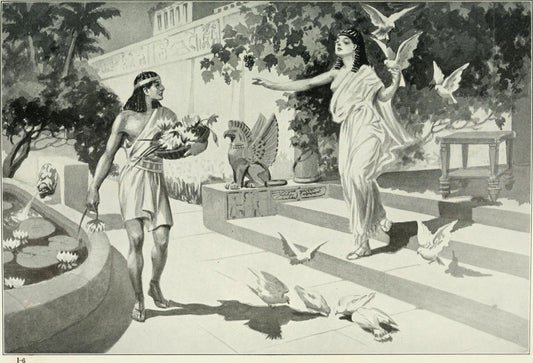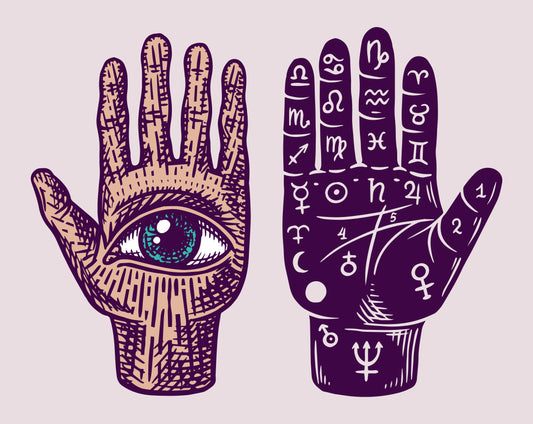
Last week we went over the basics. We discussed how alchemy was created in Egypt to understand the chemicals and pursue immortality through mummification. For the next few centuries, the ideas spread to Greek philosophers, China, and India.
All around the world, civilizations wanted to understand how the chemicals interact with each other, and furthermore, how humans could take advantage of these interactions, The Taoist monks used alchemy to explore elixirs for prolonging life. These elixirs could be composed of anything from plants and minerals to forces of energy originating from inside the mind and body.
In India, alchemy was called Rasayana which means the art of manipulating Rasa: nectar, juice, and mercury. The goal of Indian alchemy was to create a divine body and reach immortality. Sanskrit alchemical texts describe the manipulation of mercury and sulfur which are said to represent the semen of the god Siva and the menstrual blood of goddess Devi.
Chinese Alchemy and the Elixir of Life
Alchemy in Chinese is very connected to medicine, and thus the use of elixirs was commonplace. Chinese alchemists were seeking out the Grand Elixir of Immortality. During the Qin Dynasty, Qin Shi Huang sent alchemist Xu Fu with 1000 people to find the elixir in Penglai Mountain. They were unsuccessful and then sent on a second trip with 3000 children. This search mission never returned.

Chinese alchemy also brought the belief that ingesting precious gems like jade and hematite would transfer some longevity to the person who consumed them. Gold was especially central to this belief and was considered especially potent. Famous Chinese alchemical book called the Danjing yaojue or "Essential Formulas of Alchemical Classics" discusses the creation of the elixir of immortality out of mercury, sulfur, arsenic, and mercury salts. Combinations of these substances were also used to cure diseases. However... many of these potions were actually highly toxic and resulted in what we know call elixir poisoning. Several emperors, nobles, and officials died taking potions meant to elongate their lives.
This phenomenon continued for several centuries. In the time of the Six Dynasties, experimenting with drugs and potential elixirs became very common. Emperor Ai of Jin desired to avoid growing old so he consumed elixirs which then poisoned him. It was said that he fulfilled his wishes because the elixir prevented him from growing old, killing him instead.
The search for an elixir to prolong life was so popular that the opposite effect had taken hold and people were dying by the handfuls in pursuit of immortality. The irony here is palpable and perhaps saturated with a lesson about not searching for more than you are given...
Additional Elixirs
The elixir of life was the most sought-after potion for centuries, but other elixirs did exist as well. In China, they often used elixirs to induce a temporary death, akin to a coma or a trance. Once in this temporary death, people were given a Five Mineral Powder, or Cold Food Powder to revive. This powder was said to be capable of raising the dead and was a combination of cinnabar, realgar, arsenolite, laminar malachite, and magnetite. It was an ecstasy-inducing substance, and many people were addicted.
These same five substances used in Cold Food Powder were also used to make T'ai-I's elixir for summoning b breath in corpses. Many alchemists used combinations of these five substances to create some version of the elixir of life or cure to illnesses. Some also said the five minerals could create a protective charm promising safe water travel.
Meanwhile, in India, alchemists graduated from the use of mercury and cinnabar into creating medical tinctures from mostly plants. These tinctures were used to promote intelligence, clear skin, fight disease, and of course, promote longevity as well. Herbs were preserved in ghee or honey and then taken.
This early practice of alchemy turned into the guidelines for medicine, and potions did not stop here. In Europe, the use of potions rather exploded. By the time the Black Plague arrived, apothecaries were promoting potions of all sorts and for all purposes ranging from love, to death, to humor. Around this time, some people were reluctant to believe in any positive effects from these potions, but apothecaries certainly capitalized on the fear during the plague to promote selling health potions. The benefits of herbs and minerals was and still is recognized, but it was a trial and error process for hundreds of years.
Was immortality ever achieved?
Hard to say for sure, but my guess is if somebody achieved it perhaps they wouldn't have told everyone. Maybe the smartest of the ancient alchemists are still alive to this day, operating like modern people and silently living forever.

Supernature's Potion Emporium
The devotion and mysticism of alchemists in searching for the Elixir of Life and other elixirs are inspiring and exactly the reason our potion emporium came to be. Our potion pins are inspired by magic and can be used for whatever mystical goals you may be seeking. If you want toxic love to burn in your life, we have the potion for you. Similar if you need a dash of daily luck or the perfect conditions to sneak silently undercover with the help of the moon.
Luckily, our potions won't lead to your demise like the unlucky souls who drank Elixirs of Life before the recipe was finalized...
And on that note, thank you all for your support on Supernature's first Kickstarter! So far, three weeks in, we have reached 102% of our goal with the help of each of you! As we continue to raise money, we unlock more potions for your collection, so spread the word and stay tuned!




